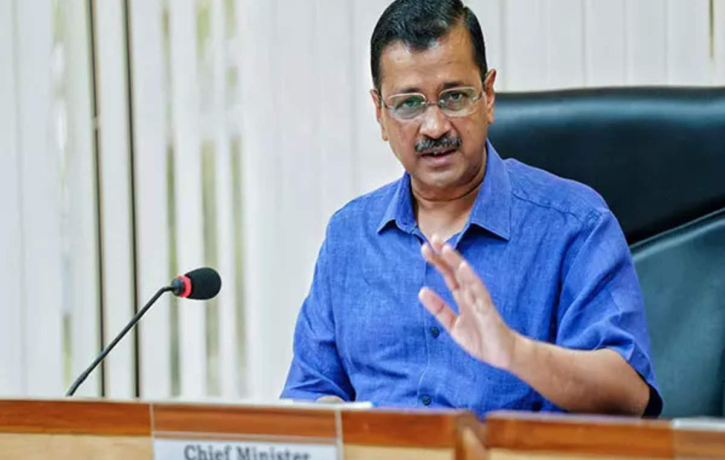Introduction
Arvind Kejriwal, Born on August 16, 1968, is a politician, activist, and former government employee from India. Representing the Aam Aadmi Party (AAP), of which he has been the national convener since 2012, he has been Delhi's seventh chief minister since 2015. In addition, he received the Ramon Magsaysay Award for his efforts to combat corruption. He was employed as a mechanical engineer for the Indian Revenue Service before to entering politics. In 2012, Kejriwal formed the AAP, and in 2013, he was appointed Chief Minister of Delhi. The Enforcement Directorate detained him in 2024 on suspicion of involvement in a liquor scandal in Delhi, becoming him the country's first chief minister to be detained while in office.
Early life and education
On August 16, 1968, in Siwani, Haryana, India, Arvind Kejriwal was born into the Agrawal family. Gobind Ram Kejriwal, his father, worked as an electrical engineer. Kejriwal was raised in a number of northern Indian locations and went to school in Sonipat and Hisar. He graduated from the Indian Institute of Technology Kharagpur in 1985 with a mechanical engineering degree after earning an All India Rank (AIR) of 563 in the IIT-JEE exam. Before leaving Tata Steel in Jamshedpur in 1992 to get ready for the Civil Services Exam, he was employed there. He performed volunteer work during this time for groups like the Ramakrishna Mission and The Missionaries of Charity.
Career
After clearing the Civil Services Examination, Arvind Kejriwal enlisted in the Indian Revenue Service (IRS) in 1995. In February 2006, he left his position as Joint Commissioner of Income Tax in New Delhi. He established the Aam Aadmi Party (AAP) in 2012, and the party won the Delhi Legislative Assembly election in 2013. Since the AAP's founding, he has served as its principal national convenor.
Activism
In 1999, Arvind Kejriwal co-founded Parivartan, a non-profit that uses community audits and RTI to address complaints from the public. Among Parivartan's achievements were the revelation of corruption in public works and the halting of a project to privatize water. For his work with Parivartan, Kejriwal was awarded the Ramon Magsaysay Award in 2006; however, by 2012, its popularity had declined.
Public Cause Research Foundation
In December 2006, Arvind Kejriwal, Manish Sisodia, and Abhinandan Sekhri formed the Public Cause Research Foundation with the money he earned as a prize from the Ramon Magsaysay Award. Prashant Bhushan and Kiran Bedi served as trustees as well. The charity used the RTI Act to fight corruption in various government agencies and contributed to Parivartan's activities.
Jan Lokpal movement
In 2010, Kejriwal called for the appointment of a public ombudsman in protests against corruption at the Commonwealth Games. He became a member of India Against Corruption (IAC) in 2011 and supported the Jan Lokpal Bill. In August 2011, a settlement was achieved in spite of criticism and arrests. The movement was accused of receiving funds from outside. Protests had returned by January 2012 as a result of government inaction. The Jan Lokpal Bill was passed by the Delhi assembly in 2015, the year of his second term.
National Convener of AAP
Accused of dictating conditions to elected authorities, Kejriwal and associates founded the AAP in November 2012. Kejriwal, as AAP leader, strained relations with Hazare by emphasizing the needs of the average man. He ran against Sheila Dikshit in the Delhi election of 2013. AAP became well-known on social media. Kejriwal highlighted the AAP's clean administration in Goa in 2022, drawing indirect comparisons with the Congress and the BJP. In September 2022, eight of the eleven Congress MLAs joined the BJP.
Chief Minister of Delhi
First term
In the 2013 Delhi Legislative Assembly elections, Kejriwal defeated Sheila Dikshit of the INC by a margin of 25,864 votes, giving the BJP 31 seats and the AAP 28. AAP secured outside backing to create a minority administration. On December 28, 2013, Delhi elected Chief Minister Tejriwal, who oversaw several important ministries. On February 14, 2014, he resigned, blaming the Congress and BJP for his inability to enact the Jan Lokpal Bill. Later on, he acknowledged that his resignation without cause was an error.
Second term
Kejriwal's AAP won 67 of the 70 seats in Delhi in 2015 the BJP won three and the INC received none. In the midst of disagreements with the Lieutenant-Governor, he returned to his position as Chief Minister and passed the Jan Lokpal Bill. In 2019, AAP started providing free healthcare at Mohalla Clinics and free bus transportation for women. Kejriwal came under fire for his divisive comments on Biharis and “outsiders.”

